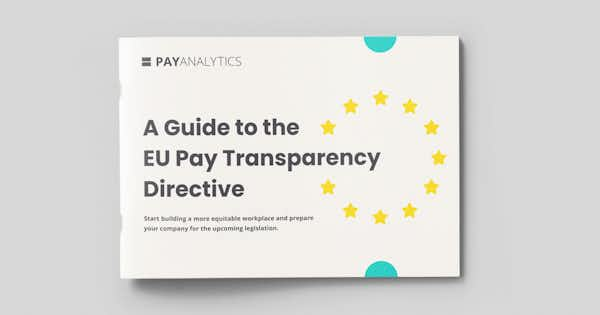Preparing for the EU Pay Transparency Directive | Download our E-book for free

Common Questions (and Good Answers) about Pay Equity Laws in Iceland
Iceland’s Gender Equality Act stipulates that workplaces with 25 employees or more are obligated to obtain equal pay certification. In this article, read up on the fundamentals of Equal Pay Certification, including when employers in Iceland will need to comply and how to do so.
What is the Equal Pay Certification?
Iceland’s Equal Pay Certification (Jafnlaunavottun) came into effect in 2017. Workplaces with 25 employees or more are obligated to obtain this certification. To do so, employers undergo an examination, conducted by an independent certification body, of their “equal pay systems” (Jafnlaunakerfi). Should the employer meet all criteria for Equal Pay Certification, the Equality Office of Iceland (Jafnréttisstofa) then awards them the “equal pay label”, which is a testament to the company’s investment in fair pay practices and pay equity across their organization. (To learn more about the benefits of this and similar certifications, listen to the Coffee Talk).
What does “equal pay system” mean?
In 2012, the Equal Pay Standard (IST-85) came into effect in Iceland. In accordance to the legislation, certification shall meet the requirements of the Standard ÍST-85, Equal Wage Management System – Requirements and guidance (normally called The Equal Pay Standard).
According to the Standard, employers must classify jobs according to the demands of the role itself. The job classification system applied is at each employer's discretion, but the Standard speculates that it must be built on valid factors.
An equal pay system (Jafnlaunakerfi) is one in which the classification of jobs is conducted according to “valid” factors, such as experience, rather than one based upon “invalid” criteria, such as race, origin, and gender, that lead to discriminatory practices.
Employers determine whether and to what extent their equal pay systems will take into account factors related to the individual, beyond those that concern the job role itself.
The standard, in effect, gives employers significant freedom to determine the extent to which the equal pay system is adapted to fit their operations and unique circumstances. The classification and measures used to determine pay must, however, always be built on objective ground to ensure that compensation inequities do not arise on the basis of, in this case, gender.
What’s involved in obtaining Equal Pay Certification?
An independent certifying body reviews the employer’s equal pay system to ensure that it meets the criteria established in ÍST-85. Upon inspection, the independent authority confirms whether or not the employer has an equal pay system in place and whether its salary decisions are built upon objective grounds without gender-based pay disparities.
Equal Pay Certification is valid for three years, at which point certification must be reapplied for. This three-year interval ensures that employers’ equal pay systems are able to withstand changing priorities while maintaining objectivity.
What are the benefits of the certification for employers?
Salary analyses bring to light an employer’s current structure and, over time, demonstrate how successful a given employer is in closing the pay gap. The equal pay system makes pay decisions easier and helps employers ensure that they are just and justified through a predefined set of principles. This, in turn, increases employee confidence in their employer; it signals that they can trust they are compensated based on valid criteria.
What are the benefits of the certification for employees?
A certified equal pay system increases employee confidence that salary decisions are underpinned by accepted, standardized, and objective criteria. A transparent pay system and pre-defined framework for making salary decisions increase employee’s trust in their employer. The Certification (as well as other international certifications such as the Italy Gender Equality Certification, EDGE Certification, or Fair Pay Workplace certification) confirms that an impartial third-party has confirmed that compensation-related decisions are made objectively and not arbitrarily.
Does certification mean that the pay gap has been closed?
The equal pay certification means that there is a system that explains how pay is determined; that pay-related decisions are made on objective grounds; and that the employer is steadily/systematically working towards pay gap closure. It does not mean that a given employer’s pay gap has been closed.
What is “Equal Pay Confirmation”?
Employers with 25 or fewer employees can apply for Equal Pay Confirmation (Jafnlaunastaðfesting), the Equality Office's confirmation that smaller companies operate an equal pay system where job classification is based on non-discriminatory criteria.
How can PayAnalytics support my company as we pursue certification?
PayAnalytics is a cloud-based software solution that enables HR managers to conduct salary reviews and measure pay gaps; our solution makes recommendations for how to close the pay gaps. Among other things, PayAnalytics:
- Calculates pay gaps by gender and other demographic variables (e.g., race, age).
- Identifies intersectional pay gaps, i.e., discrimination that people face if they belong to more than one group that is discriminated against.
- Shows which groups within the company have the biggest pay gap.
- Makes recommendations for pay increases to reduce or close pay inequities.
- Provides an overview of employees and raises using rich, flexible visualizations that make it easier to verify or adjust recommendations for raises.
- Provides an overview of the costs of reducing the pay gap.
- Makes pay suggestions for new staff or staff who are being transferred to a new job.
- Finds the most comparable employees for a specific employee and displays salary statistics for that group.
- Gives you insight into diversity and makes it easier for you to identify potential issues within groups, e.g. unequal access to opportunities or an exclusionary workplace culture.
- Examines diversity in hiring, retirement, and attrition to understand how the composition of your workforce is changing.
- Identifies possible discrimination in pay and promotions
Drop us a line to get started on the road to certification
To learn more about how PayAnalytics can help you conduct a pay equity analysis at your company, book 30 minutes with one of our pay equity specialists. We regularly work with clients who are dipping their toe into certification (as well as those with more experience).
The information on this page is not intended to serve and does not serve as legal advice. All of the content, information, and material in this article are only for general informational use. Readers are advised that this information, legal or otherwise, may not be up-to-date.





